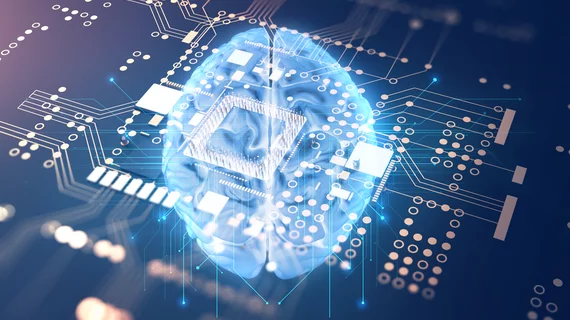3 key ways machine learning could transform interventional radiology
Machine learning could be a real game-changer for interventional radiology (IR) in the years ahead, according to a new analysis published in the American Journal of Roentgenology.
“Machine learning has the potential to enhance many aspects of patient care within the field of IR,” wrote lead author Ryan D. Meek, MD, Oregon Health & Science University in Portland, and colleagues. “Machine learning algorithms have substantial potential for aiding in tasks related to image analysis. Training and applying machine learning algorithms to perform these computer vision tasks in real time in the angiography suite could provide the interventionalist with robust procedural support tools. However, the potential applications of machine learning in IR extend beyond computer vision to include patient selection modeling, predictive tools for treatment planning, trainee education, and others.”
Meek et al. examined machine learning’s potential in detail, describing its influence on IR in three primary areas: imaging, clinical modeling and educating trainees.
1. It can lead to new imaging applications that improve patient care
The authors noted that there aren’t many machine learning imaging analysis applications in IR as of right now—but that could still very well change, especially if IR researchers consider how other specialties are making the most of these new technologies.
“Angiography-based machine learning has been developed to provide real-time estimates of fractional flow reserve, a physiologic metric considered the reference standard for identifying ischemia-related stenosis in coronary artery disease,” the authors wrote. “A similar approach to intraprocedural IR angiographic analytics could provide valuable tools for estimating physiologic data based on fluoroscopic images in real time, potentially improving many areas of IR, such as interventional oncology and venous interventions.”
There are other possibilities as well. Machine learning could help interventional radiologists treat patients with peripheral vascular disease, the authors added, and “virtual angiography with available pre-procedure images could be a valuable procedure planning tool.”
2. It can inform treatment choices
Another significant way machine learning can make an impact for interventional radiologists is through providing key data to clinical decision support (CDS) systems that providers use to make important decisions.
The “limited availability of usable data for algorithm training” remains a problem, the authors added, and it is only becoming harder to gather data due to the industry’s continued evolution, but this is still a powerful way machine learning can impact IR moving forward.
3. It can help educate trainees
Machine learning and augment reality (AR) systems could be an influential combination for IR trainees who need experience simulating certain procedures. And AR systems also show potential as a way to assess the performance of trainees.
“New iterations of mixed reality systems are being designed with dedicated AI coprocessing chips, allowing efficient processing and computing of incoming sensory data,” the authors wrote. “Researchers in urology have applied machine learning to intraprocedural data analysis for surgical evaluation and outcome prediction. Coupling similar machine learning approaches with new advances in augmented reality systems could establish new methods of evaluating trainee competency.”

